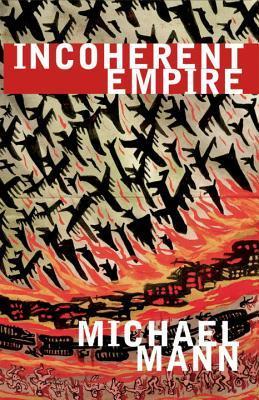
Day of Empire: How Hyperpowers Rise to Global Dominance—and Why They Fall
Book Description
Empires rise like phoenixes from the ashes, fueled by ambition, innovation, and culture. But as history shows, their reigns are as fleeting as they are glorious. In 'Day of Empire,' Amy Chua unveils the thrilling story of hyperpowers—those colossal nations that captivate the world before tumbling into decline. With razor-sharp insights and riveting examples, she explores the delicate balance between dominance and downfall, revealing the intricate dance of diversity and unity that shapes global supremacy. What lessons can we uncover about power’s ephemeral nature, and who will secure their legacy in the pages of history?
Quick Book Summary
"Day of Empire" by Amy Chua examines the history of the world’s greatest hyperpowers—from ancient Persia and Rome to Mongol, British, Dutch, and American empires—exploring the factors that led to their extraordinary global dominance and ultimate collapse. Rather than just military prowess or economic might, Chua argues that it was these empires’ exceptional tolerance for ethnic and cultural diversity that empowered their rise. However, the seeds of downfall were sown as these societies lost their initial inclusiveness, becoming intolerant, rigid, or xenophobic. Through vivid historical examples and analysis, Chua demonstrates that powerful, pluralistic societies can thrive, while the abandonment of tolerance and meritocracy often leads to decline. The book poses urgent questions for today’s global powers and what lessons might be learned from the past.
Summary of Key Ideas
Table of Contents
The Strategic Role of Tolerance in Empire-Building
Amy Chua begins by defining hyperpowers as empires that attained overwhelming economic, military, and cultural supremacy in their eras. She illustrates that such dominance was never simply a result of brute force or resources alone. Instead, hyperpowers were able to attract diverse groups—migrants, inventors, traders, and skilled individuals—creating an environment ripe for rapid innovation and expansion. By integrating conquered peoples and talents, empires like Achaemenid Persia and the Mongol Khanates set themselves apart from more insular rivals.
Diversity as a Double-Edged Sword
Tolerance emerges as the central driver of hyperpower ascendency. Chua delves into how successful empires actively practiced pluralism, allowing a multitude of ethnicities, religions, and cultures to flourish. This pragmatic openness often translated into economic and military advantage, as states leveraged the best minds and skills regardless of background. Chua offers examples from the Dutch Golden Age, Britain’s global empire, and the United States, all of which thrived when they were at their most inclusive, granting opportunity based on merit rather than narrow heritage.
Cycles of Rise and Decline
Yet, the very forces that lifted hyperpowers also carried seeds of destruction. As these societies became more dominant and wealthy, they frequently turned inward, replacing openness with rigidity and suspicion. Elites monopolized power, while rising nationalism and xenophobia gnawed at the social fabric. A once-fluid society would harden, stifling dissent and innovation. Chua demonstrates that intolerance, discrimination, and the suppression of minority contributions accelerated stagnation and left empires vulnerable to both internal strife and external challenges.
Innovation, Openness, and Power
Innovation and adaptability are woven throughout the histories of hyperpowers. Chua argues that by welcoming strangers and new ideas, dominant societies created unmatched engines of progress—technologically, culturally, and militarily. However, once this spirit faded, so too did their global preeminence. Hyperpowers that failed to re-invent themselves or re-embrace openness withered, often rapidly. The book details how cycles of pluralism and retrenchment played out repeatedly in world history.
Modern Lessons from Historical Hyperpowers
Finally, Chua turns to the modern era and the future, considering the United States’ current position in light of historical lessons. She warns that rising intolerance, polarization, or loss of the meritocratic spirit could undermine the very foundations of American leadership. By understanding the patterns that shaped and undid previous hyperpowers, societies today can glean insights into sustaining global dominance and avoiding the pitfalls of decline, making "Day of Empire" a timely exploration of past and present geopolitics.
Download This Summary
Get a free PDF of this summary instantly — no email required.





